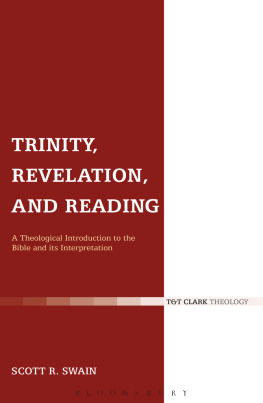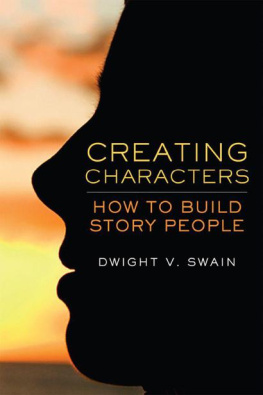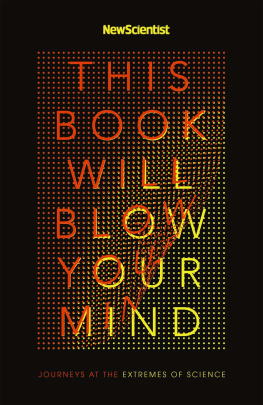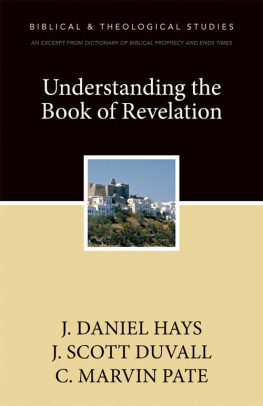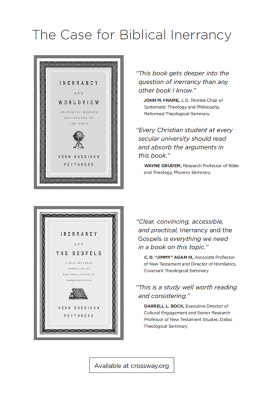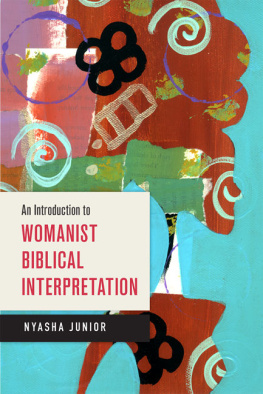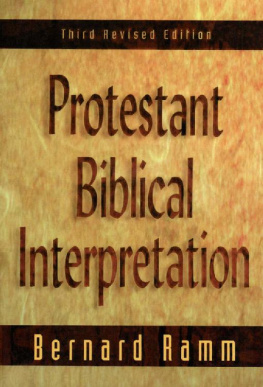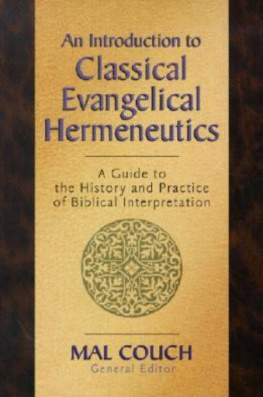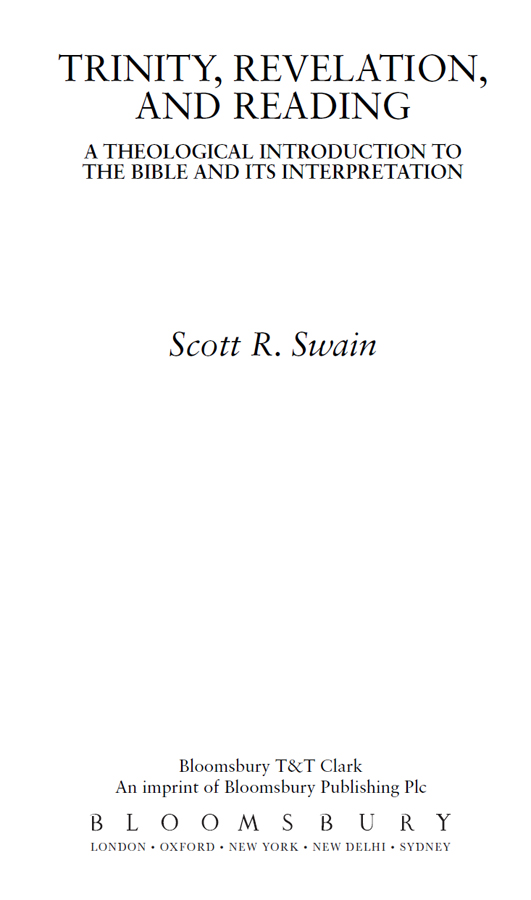
Bloom sbury T&T Clark
An imprint of Bloomsbury Publishing Plc
Imprint previously known as T&T Clark
50 Bedford Square | 1385 Broadway |
London | New York |
WC1B 3DP | NY 10018 |
UK | USA |
www.bloomsbury.com
BLOOMSBURY, T&T CLARK and the Diana logo are trademarks of Bloomsbury Publishing Plc
First published 2011 by Continuum International Publishing Group
Copyright Scott R. Swain, 2011
Scott R. Swain has asserted his right under the Copyright, Designs and Patents Act, 1988, to be identified as Author of this work.
All rights reserved.
No part of this publication may be reproduced or transmitted in any form or by any means, electronic or mechanical, including photocopying, recording, or any information storage or retrieval system, without prior permission in writing from the publishers.
No responsibility for loss caused to any individual or organization acting on or refraining from action as a result of the material in this publication can be accepted by Bloomsbury or the author.
British Library Cataloguing-in-Publication Data
A catalogue record for this book is available from the British Library.
ISBN: HB: | 978-0-5672-5525-9 |
PB: | 978-0-5672-6540-1 |
ePDF: | 978-0-5673-1596-0 |
ePub: | 978-0-5670-1625-6 |
Typeset by Newgen Imaging Systems Pvt Ltd, Chennai, India
CONTENTS
To My Parents
A number of people deserve thanks for the influence they have had on the writing of this book.
David Puckett piqued my interest in all things hermeneutical over 15 years ago in a year-long elective on the history of biblical interpretation. Andreas Kstenberger, another former teacher, introduced me to redemptive-historical interpretation and initiated the present project. As I note in the introduction, my Doktorvater Kevin Vanhoozer has shaped my perspective on many of the issues discussed in this book considerably.
Thanks are also due to my friends Mike Allen and Dan Treier. Both read the entire manuscript and made a number of helpful suggestions about how to improve it. Mike also introduced me to Tom Kraft at T & T Clark who shared his enthusiasm for the manuscript and provided expert guidance throughout the process of bringing it to publication. Jennifer Redd graciously prepared the index.
The Board of Trustees and the Faculty of Reformed Theological Seminary in Orlando, Florida, granted me a sabbatical in the Fall 2009 semester, during which most of the writing was completed. Over the past couple of years, students in my hermeneutics classes at RTS have read various redactions of the manuscript. Not only have they pointed out a number of typos (hopefully weve caught them all!). They have also helped me think more clearly about its contents. Jonny Dyer deserves special mention in this regard.
I am daily graced by the presence and wisdom of my wife Leigh and by the joy of our children: Carly, Sophie, Josiah, and Micah. This book is for them as much as anyone (Ps. 145.4).
Finally, it is with enormous gratitude to God that I dedicate this book to my parents, Bill and Lynn Swain. The foundations for the present work, and indeed for my theological vocation, were laid as they daily taught me the Holy Scriptures which are able to make one wise for salvation through faith in Christ Jesus (2 Tim. 3.15). This book is the fruit of their labors as well.
Unless otherwise indicated, all Scripture quotations are from The Holy Bible, English Standard Version (ESV), copyright 2001 by Crossway, a publishing ministry of Good News Publishers. Used by permission. All rights reserved.
I. A Theological Introduction to the Bible and Biblical Interpretation
The present study seeks to provide a theological introduction to the Bible and its interpretation. The focus is not so much upon the theology that is in the Bible (i.e., biblical theology), What roles do Holy Scripture and the reading of Holy Scripture play within the unfolding drama of the commerce and communion between God and humanity? That is the question which this book seeks to answer.
Answering such a question requires that we bring a host of doctrines into the discussion. We must concern ourselves not simply with the doctrine of Scripture, but also in one way or another with the doctrines of the Trinity, covenant, revelation, providence, anthropology, salvation, sanctification, the church, and eschatology. Because biblical interpretation is one dimension of the relationship between God and humanity, sin and redemption, the individual and the church, we cannot properly understand biblical interpretation without considering these topics as well. Our aim in surveying this wide array of topics, however, is not comprehensiveness but coherence. The point of a theological introduction to our twin themes is to articulate a brief but coherent vision of how these themes fit together within the larger evangelical reality of Gods relation to his people. It is hoped that such a vision may function in turn as a framework within which students can integrate the broad range of knowledge, attitudes, and skills that are requisite to becoming faithful and competent readers of Holy Scripture.
The present book, then, is something of a theological foyer to the much larger house of biblical interpretation. The purpose of this introductory chapter is to provide a doorway to that foyer. To this end, we will discuss the rationale behind a theological introduction to the Bible and biblical interpretation; three of the major doctrinal concepts that will occupy us in this studyTrinity, revelation, and reading; and the stance and context of the present work. The introduction will conclude with an overview of the chapters that follow.
II. Why Is a Theological Introduction to the Bible and Biblical Interpretation Necessary?
It should be obvious that the doctrine of Scripture calls for theological analysis and exposition. It is perhaps less obvious, however, that the practice of reading and interpreting the Bible should call for theological analysis as well. One can easily imagine the kinds of questions that might be raised in objection to such an approach. Shouldnt theology be the result of biblical interpretation and not its presupposition? Do we not poison the interpretive well when we introduce doctrinal concerns at the beginning of the interpretive process? Arent the church and the world best served when readers are free to read the Bible like any other book, apart from doctrinal Each of these questions deserves an at least partly affirmative answer. However, a simple yes to any of them is ultimately insufficient. The remainder of this study will hopefully demonstrate why this is the case. For the time being, a couple of points can be made.
First, the Bible is not an ordinary book. From a certain vantage point of course, the point is not debatable. No other book has had a comparable influence upon Western culture to that of the Bible. However, when Christians affirm the extraordinary nature of the biblical writings, they usually intend to say more than simply that these writings constitute a great literary classic. According to common Christian confession, the Bible is the unique product of divine action and oversight. Although theologians continue to debate the exact nature of Gods active relationship to this text, most Christians regard the Bible as the preeminent textual embodiment of divine self-communication. That is to say, they consider the Bible to be the Word of God. Thus, according to the Nicene Creed, one of Christianitys most widely acknowledged standards of belief, the Holy Spirit spoke by the prophets. It is the Bibles status as Gods word that accounts for its extraordinary nature and for the churchs treatment of the Bible as a sacred book, as Holy Scripture.

